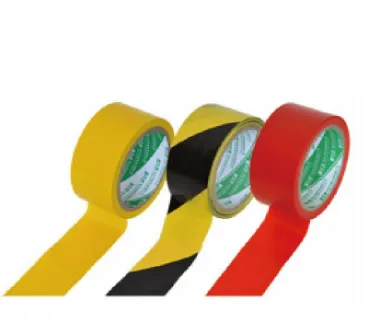The industrial tape and supply company sector plays a crucial role in providing high-performance adhesive solutions for various industries. From electrical insulation to construction, these companies supply specialized tapes designed to meet specific safety and durability requirements. Among the most essential types is electrical insulation tape, known for its ability to prevent short circuits, resist heat, and protect electrical connections.

Unlike general-purpose adhesive tapes, electrical insulation tape is made from highly durable materials like PVC and rubber, ensuring flexibility and resistance to wear and tear. As industries demand more reliable and long-lasting solutions, industrial tape and supply company providers continue to innovate, offering improved thermal stability, enhanced adhesive properties, and better resistance to environmental factors.
Tape Electrical Insulation: Ensuring Safety in Electrical Applications
One of the key differences between tape electrical insulation and standard adhesive tapes is its ability to provide a protective barrier against electrical currents. Unlike duct tape or masking tape, tape electrical insulation is specifically engineered to insulate electrical wires and components, preventing accidents such as short circuits and electrical fires.
Furthermore, tape electrical insulation is designed to withstand high voltages, extreme temperatures, and moisture exposure. Unlike packing or masking tape, which may degrade over time, this specialized tape maintains its insulating properties even in challenging environments. This makes it an essential product for electricians, engineers, and technicians who require reliable insulation solutions for their work.
Electrical Insulation Tape vs. General Adhesive Tapes
When comparing electrical insulation tape with other adhesive tapes, it becomes clear that not all tapes are created equal. While general-purpose tapes like scotch tape or double-sided tape are excellent for everyday use, they lack the essential properties required for electrical applications.
Key differences include:
-
Material Composition: Electrical insulation tapeis made of non-conductive materials like vinyl and rubber, while standard adhesive tapes are often paper- or plastic-based.
-
ភាពធន់នឹងកំដៅ: Unlike general adhesive tapes, electrical insulation tapecan withstand high temperatures, making it ideal for industrial and home electrical applications.
-
Durability and Longevity: Electrical insulation tapeis designed to last, providing long-term protection against environmental exposure, while standard adhesive tapes degrade over time.
These distinctions make electrical insulation tape a superior choice for any application requiring electrical safety and protection.
Tape for Construction: Strength and Versatility in Building Applications
In the construction industry, tape for construction is widely used for sealing, bonding, and insulating purposes. While electrical insulation tape is designed for wiring and electrical work, other construction tapes, such as duct tape, painter’s tape, and waterproof sealing tape, serve different purposes.
Compared to electrical insulation tape, tape for construction often focuses on adhesion strength and environmental resistance. For example, duct tape provides a strong bond for securing materials, while waterproof tape is used for sealing leaks and preventing moisture infiltration. However, neither of these tapes can provide the electrical safety that electrical insulation tape offers, making each type of tape essential for its specific application.
Choosing the Right Tape for Your Needs
When selecting the best tape for your project, it is crucial to understand the differences between industrial tape and supply company offerings, tape electrical insulation, electrical insulation tape, and tape for construction. While each type has its strengths, electrical insulation tape stands out for its unique ability to protect electrical connections and prevent hazards.
For industries requiring high-performance adhesive solutions, investing in electrical insulation tape is a must. Ensure safety, durability, and efficiency in your projects by choosing the right tape for your needs. Get high-quality electrical insulation tape today and experience the benefits of superior protection and performance!
-
XIANGFAN Rubber Tape-Ultimate Solutions for All Your Insulation Needsព័ត៌មានJun.24,2025
-
XIANGFAN Rubber Tape-Protection for Industrial and Residential Applicationsព័ត៌មានJun.24,2025
-
XIANGFAN Rubber Tape: Superior Safety and Sealing for Demanding Environmentsព័ត៌មានJun.24,2025
-
XIANGFAN Rubber Tape: Reliable Solutions for Every Electrical Challengeព័ត៌មានJun.24,2025
-
XIANGFAN Electrical & Industrial Tape: Powering Reliability Across Industriesព័ត៌មានJun.24,2025
-
XIANGFAN Electrical & Industrial Tape: Excellence in Every Applicationព័ត៌មានJun.24,2025
